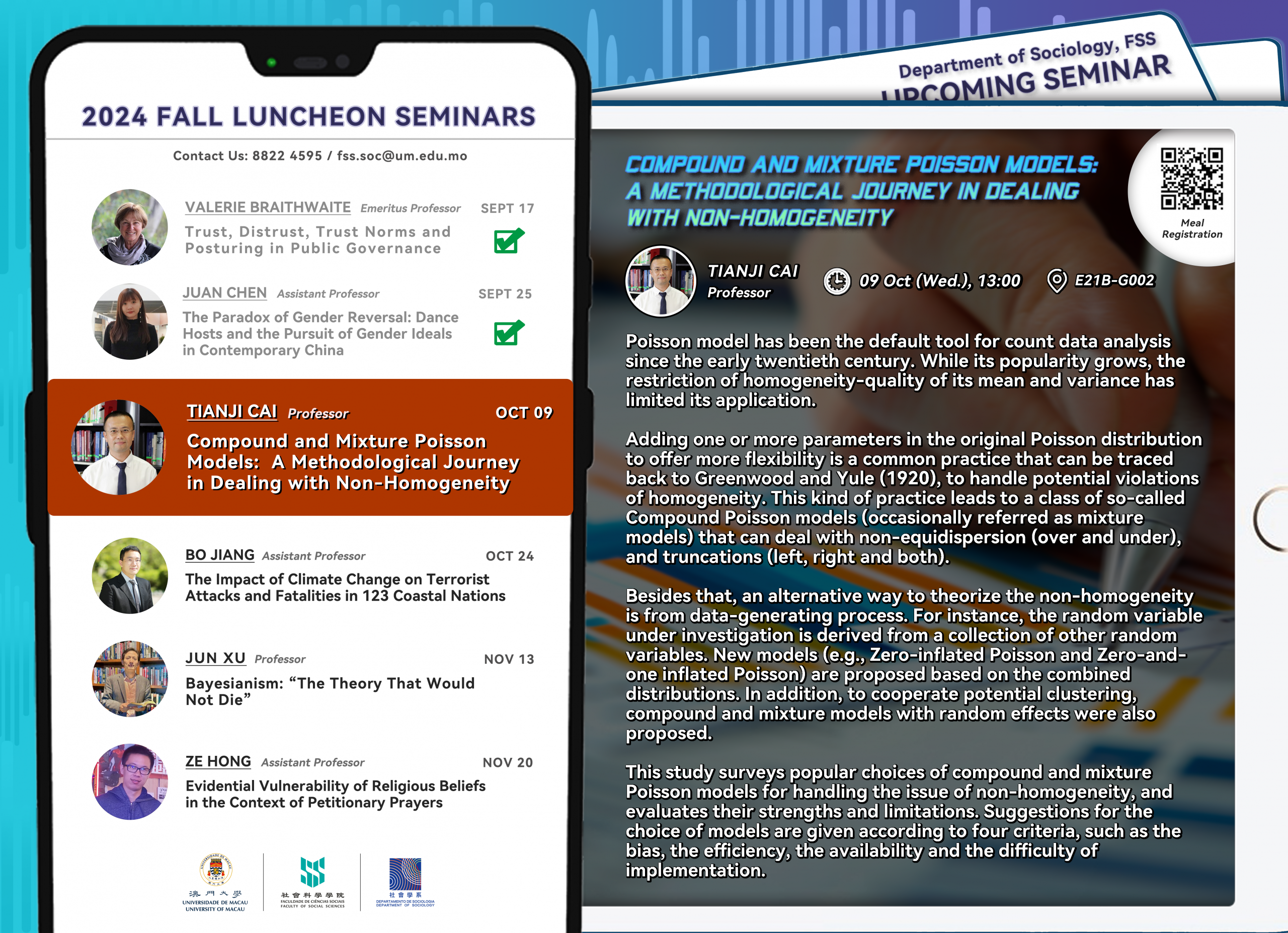
Date: October 9
Time: 1:00 pm – 2:30 pm
Speaker: Prof. Tianji CAI
Venue: E21B-G002
Organizer: Department of Sociology
Phone: 8822 4595
Poisson model has been the default tool for count data analysis since the early twentieth century. While its popularity grows, the restriction of homogeneity-quality of its mean and variance has limited its application.
Adding one or more parameters in the original Poisson distribution to offer more flexibility is a common practice that can be traced back to Greenwood and Yule (1920), to handle potential violations of homogeneity. This kind of practice leads to a class of so-called Compound Poisson models (occasionally referred as mixture models) that can deal with non-equidispersion (over and under), and truncations (left, right and both).
Besides that, an alternative way to theorize the non-homogeneity is from data-generating process. For instance, the random variable under investigation is derived from a collection of other random variables. New models (e.g., Zero-inflated Poisson and Zero-and-one inflated Poisson) are proposed based on the combined distributions. In addition, to cooperate potential clustering, compound and mixture models with random effects were also proposed.
This study surveys popular choices of compound and mixture Poisson models for handling the issue of non-homogeneity, and evaluates their strengths and limitations. Suggestions for the choice of models are given according to four criteria, such as the bias, the efficiency, the availability and the difficulty of implementation.
Tianji Cai received his PhD degree at University of North Carolina at Chapel Hill in 2010. Prior to joining University of Macau, he has worked in University of North Texas for two years. His research interests concentrate on new forms of data and new methods of analysis. Reflecting on his broad intellectual pursuits, his research topics are diverse, ranging from methodological, such as quantitative methods and data mining, to substantive ones, such as gene-environmental interplay and adolescent health behaviors. He has published widely in leading international journals including American Sociological Review, American Journal of Sociology, Demography, Sociological Methodology, Sociological Methods & Research, Chinese Sociological Review, etc.

